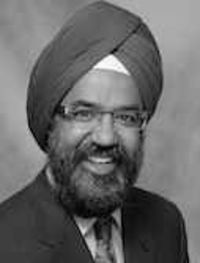Professor Arturo Chiti was elected as the President Elect of the European Association of Nuclear Medicine (EANM) in October 2012 and took office in January 2015. Chiti says he is “very proud, happy and excited” to take up the new challenge. Professor Chiti is Full Professor of Diagnostic Imaging at Humanitas University and Director of the Nuclear Medicine Department at Humanitas Research Hospital in Milan, Italy. His scientific and clinical activity is focused on the use of PET-CT in oncology, in particular new radiopharmaceuticals, hybrid imaging and advanced use of imaging in radiation oncology.
HealthManagement with EANM interviewed Prof. Chiti on the occasion of the EANM 2014 congress. The full interview can be viewed in the video below.
How important is the EANM congress for you?
It is fundamental as our time-driven window. It is where all the back office work that is done by the office, by the committees, by everyone working towards the realisation of the congress comes together. The highest scientific value is from the place where we meet with colleagues. We are attractive as a European congress and we are proud of that. We have people coming from Asia, Africa, Oceania, North and South America as well as Europe
You invited Yvonne Alford to bring the “Voice of the patient” to the EANM’14 Congress. Can you explain your motivations for this and the importance of her attendance?
It is important as there is now more awareness of the significance of what patients feel during their treatment. Nuclear medicine is a specialty in which we have a huge diagnostic part, but also a very important therapeutic role. We have to take care of our patients when we are doing the diagnostics-related part of our specialty and as inpatients when we are doing the therapeutic part. To share with patients their motivations and to discuss with them what we want to do is something that gives an added value not only to our everyday work but also to our scientific work. Having a patient speak at the congress is a demonstration of the fact that the patient is the centre of our activity. Doctors from all over the world are working towards one goal - to provide good care to the patient. So it’s natural that we want to have patients involved. Yvonne is the first one and hopefully not the last. I am very happy that she made it here, and I also want to underline that it is not easy to express personal feelings in front of 3000 people.
How do you find the balance between showing empathy and bringing the clinical message across?
It is something that should have been done in medical school. There we are in charge of teaching the student how to treat the patient. Most important is the personal touch that you have to add. It is true that the personal touch can change from person to person. We can make an effort to make the personal touch more visible to the world and start using it. One of the things that we can do is to start thinking of patients not just as numbers
Is enough being done to encourage younger people to go into medicine research?
We have to encourage young people to enter our specialty, and first of all they must know that nuclear medicine exists. We are trying to promote the specialty to young people. We have medical students attending the congress, and of course we have to encourage the young and the brilliant to enter and be active in the nuclear medicine specialty.
What are your personal interests outside of work?
First of all, I have to take care of my family. I have one daughter one month old, one boy two years and a half and one daughter 23 years old, so I have a huge range of children to take care of. They are my life. After that what I really like is Opera. I like to listen to Opera and classical music. I also like to read books, particularly history books. And when I can I like to walk in the mountains, and I also like skiing.
If you had not chosen this career path what would you have liked to become? Maybe an opera singer?
I am really bad in music, so the only thing I can do is listen, nothing more. When I was very young, my mother sent me to guitar lessons. Then she had a phone call. After one day the teacher said “I am sorry but I feel guilty because he is not able to play anything so you are really spending your money for nothing.” So I quit. But I like listening. My grandfather and my father were both engineers. Most probably I would also have liked to be an engineer.
Prof. Chiti qualified as a doctor at the University of Milan, where he also qualified as a nuclear medicine physician in 1993. From 1989 to 1993 he was a nuclear medicine physician at the Hospital San Paolo in Milan. He worked in the Nuclear Medicine Unit at the National Cancer Institute in Milan from 1993-2000. He is an honorary member of the European Society for Radiotherapy and Oncology. Since becoming a member of the EANM Oncology Committee in 2004, he has also served as Chair of the Committee from 2007 to 2010, as Committee Coordinator from 2011-2012 and President-Elect from 2013 to 2014. is Honorary Editor of the European Journal of Nuclear Medicine and Molecular Imaging.




















